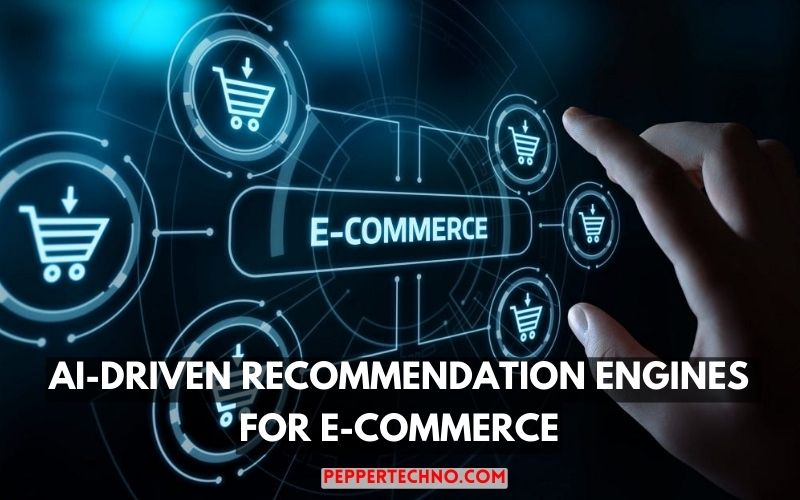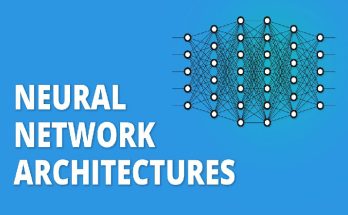The Power of AI: AI-Driven Recommendation Engines for E-Commerce
In today’s digital age, e-commerce has become an integral part of our daily lives, offering consumers unparalleled convenience and access to a vast array of products and services. However, with this abundance of choice comes the challenge of navigating through an overwhelming amount of options. This is where AI-driven recommendation engines come into play, revolutionizing the e-commerce landscape by personalizing the shopping experience and guiding consumers towards products that align with their preferences and interests. In this comprehensive guide, we’ll explore the transformative impact of AI-Driven recommendation engines for e-commerce, delving into their functionality, benefits, and future implications.

Enhanced Personalization
One of the key advantages of AI-driven recommendation engines is their ability to deliver highly personalized shopping experiences tailored to individual preferences and behaviors. By analyzing vast amounts of user data, including purchase history, browsing patterns, and demographic information, these recommendation systems can generate accurate predictions and recommendations that resonate with each customer.
Personalization is not limited to product recommendations alone but extends to various aspects of the shopping journey, including personalized content, promotions, and pricing. For example, AI algorithms can dynamically adjust product recommendations based on real-time interactions and contextual cues, such as the time of day, location, and device used, to provide relevant and timely suggestions that enhance the overall shopping experience.
Moreover, AI-powered recommendation engines enable e-commerce platforms to leverage user-generated content and social data to further refine recommendations. By integrating social media data, product reviews, and influencer endorsements into their algorithms, e-commerce platforms can enhance the relevance and credibility of product recommendations, fostering trust and engagement among consumers.
Improved Customer Engagement and Retention
In addition to enhancing personalization, AI-driven recommendation engines play a crucial role in driving customer engagement and retention for e-commerce businesses. By delivering relevant and enticing product recommendations, these recommendation systems can capture consumers’ attention, encourage exploration, and increase the likelihood of purchase.
Furthermore, AI-powered recommendation engines can help e-commerce platforms identify and capitalize on cross-selling and upselling opportunities by suggesting complementary products or premium upgrades based on customers’ purchase history and preferences. By presenting relevant add-on items or bundle deals at strategic touchpoints throughout the shopping journey, e-commerce platforms can maximize the value of each transaction and increase average order value.
Moreover, AI-driven recommendation engines enable e-commerce platforms to implement targeted marketing campaigns and promotional offers tailored to specific customer segments. By analyzing historical data and behavioral patterns, these recommendation systems can identify high-value customers, dormant users, and at-risk segments, allowing e-commerce businesses to deliver personalized incentives, discounts, and rewards that drive repeat purchases and foster long-term loyalty.
Optimized Merchandising and Inventory Management
Beyond enhancing the customer experience, AI-driven recommendation engines also offer valuable insights and optimization opportunities for e-commerce businesses in terms of merchandising and inventory management. By analyzing real-time sales data, market trends, and customer feedback, these recommendation systems can inform merchandising decisions, such as product assortment, pricing strategies, and promotional campaigns.
For example, AI algorithms can identify emerging trends and seasonal patterns in consumer behavior, enabling e-commerce platforms to adjust their inventory levels and product mix accordingly to meet demand and capitalize on sales opportunities. By leveraging predictive analytics and demand forecasting models, e-commerce businesses can optimize their inventory allocation, reduce stockouts, and minimize excess inventory, thereby improving operational efficiency and profitability.
Moreover, AI-powered recommendation engines can help e-commerce platforms identify underperforming products or categories and implement targeted merchandising strategies to boost sales and clearance efforts. By analyzing customer engagement metrics, conversion rates, and profitability metrics, these recommendation systems can identify opportunities to optimize product placements, promotions, and pricing strategies, driving incremental revenue and maximizing return on investment.
Challenges and Considerations
While AI-driven recommendation engines offer significant benefits for e-commerce businesses, there are several challenges and considerations that need to be addressed to maximize their effectiveness and mitigate potential risks. One major concern is the need for transparency and accountability in AI algorithms to ensure fairness, ethics, and compliance with regulatory requirements.
Furthermore, e-commerce businesses must address privacy concerns and data protection regulations to safeguard customer data and maintain trust and confidence in their recommendation systems. By implementing robust data governance frameworks, encryption protocols, and user consent mechanisms, e-commerce platforms can ensure responsible and ethical use of customer data while delivering personalized shopping experiences.
Moreover, e-commerce businesses must invest in talent development and infrastructure to build and deploy AI-powered recommendation engines effectively. This includes recruiting data scientists, machine learning engineers, and AI specialists with expertise in algorithm development, model training, and performance optimization.
Future Directions and Implications
Looking ahead, the future of e-commerce is closely intertwined with the evolution of AI-driven recommendation engines, which will continue to play a central role in shaping the digital shopping experience. As AI technologies continue to advance and mature, we can expect to see increasingly sophisticated recommendation systems that leverage advanced machine learning techniques, such as deep learning and reinforcement learning, to deliver even more accurate, relevant, and personalized recommendations.
Moreover, AI-powered recommendation engines have the potential to transform other areas of e-commerce beyond product recommendations, including personalized marketing, customer service, and supply chain management. By integrating AI across the entire e-commerce value chain, businesses can create seamless and immersive shopping experiences that drive customer engagement, loyalty, and long-term growth.
Conclusion:
AI-driven recommendation engines represent a game-changing innovation for e-commerce businesses, offering a powerful tool for enhancing personalization, driving customer engagement, and optimizing operational efficiency. By harnessing the power of AI, e-commerce platforms can unlock new opportunities for growth, innovation, and competitive differentiation in an increasingly dynamic and competitive marketplace. However, realizing the full potential of AI in e-commerce requires a strategic and holistic approach that addresses technical, ethical, and regulatory considerations while prioritizing customer-centricity and value creation.



